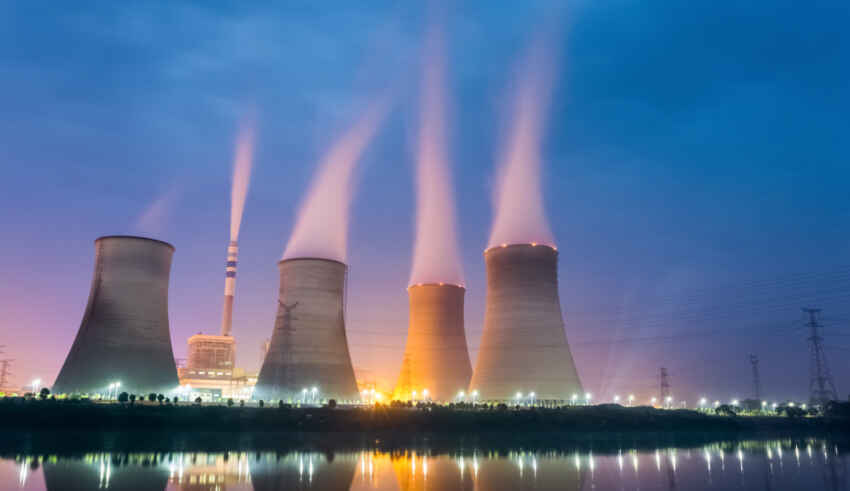
The 16 countries that make up the self-styled Nuclear Alliance signed a joint declaration on 16 May urging the European Commission to recognise the role of nuclear energy in the European Union’s energy strategy. They also call for the implementation of an action plan to develop cooperation in the atomic field, be it on competences, innovation, safety standards, decommissioning or waste (Energias renovables, 2023).
This alliance has been created by an initiative of France. The aim of it is to bring together all European countries wishing to rely on nuclear energy, alongside renewable energies, ‘to bring their energy transition to a successful conclusion’. This meeting was attended by spokespersons from Belgium, Bulgaria, Croatia, the Czech Republic, Estonia, Finland, France, Hungary, Lithuania, the Netherlands, Poland, Romania, Slovenia, Slovakia, the United Kingdom as a guest country and Italy as an observer (Ministère de la transition econologique, 2023).
However, previous meeting had taken place on February 28 and March 28, 2023, the Ministers, together with a large number of representatives from the above nations, met in Paris with the EU Director General for Energy on May 16, 2023, to discuss avenues of engagement in the field of thermal power. They reaffirmed their commitment to further strengthen European cooperation in the field of nuclear energy as an important component of Europe’s energy and climate ambition, as 2023 marks the 65th anniversary of the Euratom Treaty (Energias renovables, 2023).
EU sources said that at this latest meeting which happened in May, the Commission encouraged Member States to reflect on their plans to invest in additional nuclear generation and has also committed to support this work with a study of the European nuclear ecosystem by early 2024, as well as to support progress towards a small modular reactor partnership. Furthermore, during the meeting, the representatives stressed the “essential” contribution of nuclear energy as a “complement” to renewable energies to the decarbonisation of energy production in Europe (Energias renovables, 2023). They therefore called on both the EU and international partners to consider the contribution of all affordable, reliable, non-fossil and secure energy sources to achieving climate neutrality by 2050 (Messad, 2023).
However, the road ahead will not be easy, both for those who will go for nuclear energy and for those who will go for other technologies. As far as nuclear energy is concerned, one of the main constraints is the high costs associated with the construction of nuclear power plants, sometimes several times higher than the costs announced at the outset (e.g., Olkilkuoto in Finland and Flamanville in France). Another constraint is maintenance costs, which in some countries, such as France, are a major challenge as the average age of their reactors is 34 years. The cost of reactive waste management is a further constraint, including the creation of new storage sites to cope with the saturation of already existing sites. Additionally, fission power is also affected by the uranium shortage (Messad, 2023). In this respect, the uranium peak, which has apparently already occurred, happened in 2016, although it is still too early for its effects to be felt. France alone consumes 8,000 tonnes of uranium per year, about 13% of world consumption. For this, France, which closed its last mine in 2001, relies on deposits located mainly in Canada, Kazakhstan, and Nigeria (Romani, 2023)
Thus, the war in Ukraine has accelerated decision-making and agreements on energy policy. Several measures and proposals have been put forward over the last year by the 27 members of the EU. However, all of them have come up against a clear geographical, political, economic, and technological heterogeneity. From this perspective, a significant divergence in the path towards carbon neutrality 2050 is to be expected. This is why Europe is facing one of its greatest challenges in terms of security of energy supply, competitiveness and sustainability. For many, fission energy is indispensable in this challenging journey (Romani, 2023).
References
Romani, J.C. (2023). “El futuro de la energía nuclear en Europa” (The future of nuclear energy in Europe). Margus commodities. Retrieved from: https://www.magnuscmd.com/es/el-futuro-de-la-energia-nuclear-en-europa/
Messad, P (2023). Nuclear alliance aims for 150 GW of nuclear capacity in EU by 2050. ERACTIV Neswpaper. Retrieved from: https://www.euractiv.com/section/energy-environment/news/nuclear-alliance-aims-for-150-gw-of-nuclear-power-in-eu-by-2050/
Energias renovables (2023). “16 países liderados por Francia instan a Bruselas a reconocer la energía nuclear en la estrategia energética de la UE” (16 countries led by France urge Brussels to recognize nuclear power in EU energy strategy). Catalogo 2022-2023. Retrieved from: https://www.energias-renovables.com/panorama/la-alianza-nuclear-anima-a-bruselas-a-20230517
Ministère de la transition econologique. (2023). Nuclear Alliance meeting– Paris 16 May 2023 – Draft Statement. Retrieved from: https://www.ecologie.gouv.fr/sites/default/files/nuclear%20alliance%20statement_VEN.pdf
By The European Institute for International Law and International Relations.















